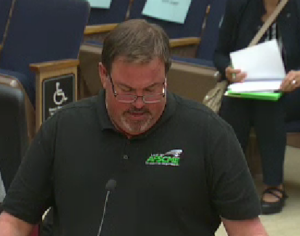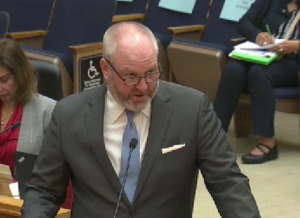California Construction News staff writer
San Diego has approved a project labor agreement that will apply to all city construction projects over $1 million for a seven-year term beginning July 1, 2024.
The PLA establishes the terms and conditions of employment on most city-funded construction projects, setting wages, safety protocols and regulations for contractors and all their subcontractors. It includes goals for hiring disadvantaged local workers like former foster children, homeless people and veterans.
“The Citywide project labor agreement approved by the City Council today ensures that critically needed City infrastructure projects get done safely and efficiently, providing us with a reliable source of skilled and trained workers and prioritizing the employment of local residents for good-paying jobs,” said Mayor Todd Gloria.” I am grateful to the San Diego County Building and Construction Trades Council for their partnership on this agreement and the voters of San Diego, whose wisdom in approving Measure D in 2022 made it possible.”
While the PLA could increase the cost of infrastructure projects, the agreement will boost wages for local construction workers.
Tim Douglas, AFTI Local 127 president, supported the PLA.
 “I stand here in unity with my brothers and sisters from the building trades,” he said at the Jan. 30 council meeting. The PLA “will cast away the bygone era of the anti-worker mindset which saw a race to the bottom for supposed cheapness which saved a penny today, but has cost the city taxpayers too much in the long run.”
“I stand here in unity with my brothers and sisters from the building trades,” he said at the Jan. 30 council meeting. The PLA “will cast away the bygone era of the anti-worker mindset which saw a race to the bottom for supposed cheapness which saved a penny today, but has cost the city taxpayers too much in the long run.”
Dustin Stein spoke against the PLA, representing 900 union and open shop construction firms of the Association of General Contractors of San Diego.
 “Over 80 per cent of the construction industry in San Diego is open shop,” he told council. “PLAs increase costs on projects, exclude qualified apprentices like our own and force workers to pay the union benefits they will likely never receive.”
“Over 80 per cent of the construction industry in San Diego is open shop,” he told council. “PLAs increase costs on projects, exclude qualified apprentices like our own and force workers to pay the union benefits they will likely never receive.”
San Diego is expected to award 111 contracts for construction projects during the ongoing fiscal year that are estimated to cost about $635 million.
The PLA will also require the city to create a new bureaucracy to ensure compliance with its rules. Noel suggested the city would likely need five to eight workers, including one highly paid program manager.
To avoid pushing small firms out of bidding for city contracts, the PLA applies only to projects of $5 million or more during its first two years. The threshold drops to $1 million after that.
The PLA also includes carve-out provisions that allow contracting firms owned by disadvantaged people to bid on projects even if they don’t meet some criteria.














